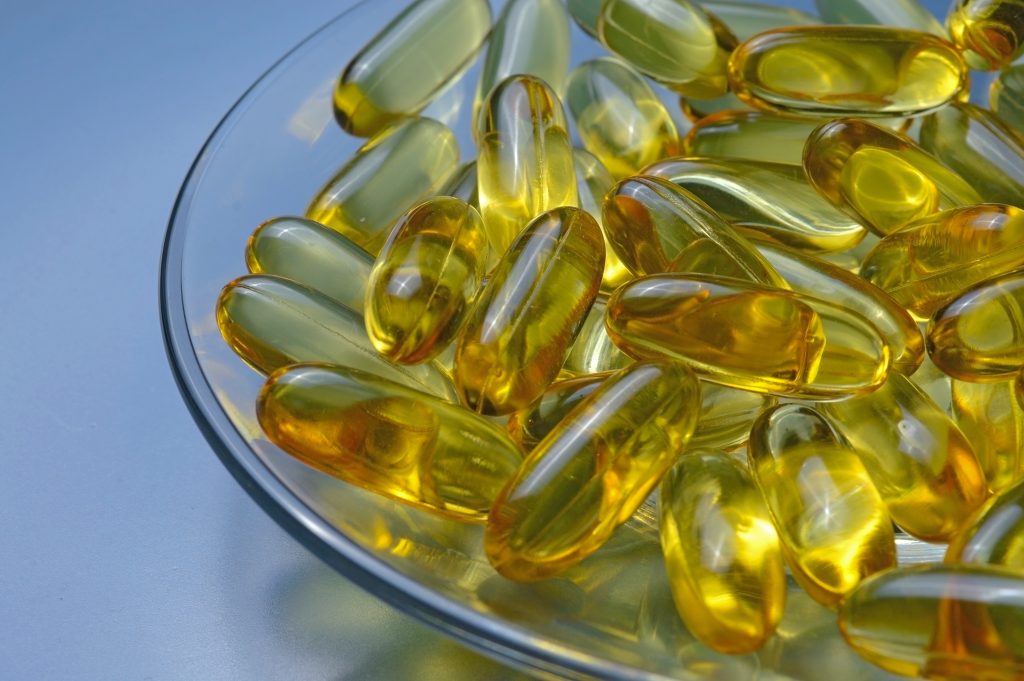The stress response is an ancient survival mechanism driven by the sympathetic nervous system and the hypothalamic–pituitary–adrenal (HPA) axis. When a threat is perceived, the pituitary gland releases adrenocorticotropic hormone (ACTH), which stimulates adrenaline and cortisol production, enabling rapid energy mobilization to confront the threat that our body faces. Normally, once the perceived danger ends, cortisol levels drop, and the body returns to balance.
In modern life, psychological stressors are frequent and prolonged, keeping the HPA axis continuously active. This sustained cortisol release disrupts the feedback loop, preventing recovery and leading to high blood pressure, metabolic disorders, immune dysfunction, and neurological issues such as memory deficits and depression.
Controlling cortisol levels through targeted supplementation is therefore a valuable strategy to counteract the harmful effects of chronic stress.
What supplements help lower cortisol?
Several dietary supplements demonstrate effectiveness in lowering cortisol according to published research studies:
- Magnesium supplementation has been shown to decrease 24-hour urinary cortisol excretion and enhance the activity of enzymes involved in glucocorticoid metabolism, contributing to improved stress resilience and cardiovascular health [1].
- Vitamin C also exhibits cortisol-lowering properties; studies report significant reductions in plasma cortisol in individuals with chronic stress after ascorbic acid supplementation [2].
- Omega-3 fatty acids, particularly eicosapentaenoic acid (EPA) and docosahexaenoic acid (DHA), are associated with reduced cortisol levels and inflammation. Their role extends to supporting mental health through the regulation of stress responses [3].
- Combinations of magnesium with vitamin B6 or high-dose vitamin C have been linked to anxiety and stress reduction in women [4].
These findings point to the promising role of specific vitamins, minerals, and fatty acids in formulations aimed at modulating stress-related hormonal responses. However, variations in study design, dosage, and participant profiles lead to inconsistent results. To validate these effects with greater certainty, we need standardized research methodologies.
Mechanisms of action: how supplements work on HPA axis & inflammation
Supplements to lower cortisol influence the body’s stress response primarily through their effects on the hypothalamic–pituitary–adrenal (HPA) axis and inflammatory pathways:
- Magnesium supports enzymatic processes that deactivate cortisol, helping restore hormonal balance and reducing the prolonged activation of stress responses [1].
- Vitamin C directly interferes with cortisol synthesis in the adrenal glands by inhibiting key enzymatic reactions, leading to a measurable decrease in circulating cortisol levels. At the same time, its antioxidant activity protects tissues from damage caused by chronic stress, which is often accompanied by high levels of oxidative molecules [2].
- In the case of omega-3 fatty acids (EPA and DHA), multiple biological pathways to reduce cortisol and inflammation have been described [3]. Their activity includes lowering the production of pro-inflammatory cytokines such as TNF-α and IL-6, enhancing brain-derived neurotrophic factor (BDNF) to support neuronal survival, and regulating cortisol secretion to maintain balanced HPA axis function. They also improve cardiovascular performance, which is often impaired under chronic stress, and promote neuroprotection and neuroregeneration, mitigating stress-related neuronal damage.
- Vitamin B6, particularly when combined with magnesium, supports the synthesis of neurotransmitters such as gamma‐aminobutyric acid, serotonin, and dopamine, helping modulate the stress response at both the hormonal and neural levels. Besides, it may also modulate magnesium levels [5].
Key natural antioxidants in cortisol‑modulating formulations
Although these supplements have proven effective in reducing cortisol, their formulation is crucial to ensure they deliver the intended benefits.
This is particularly true for omega-3 fatty acids, where oxidation poses a significant threat to both stability and efficacy. Due to their polyunsaturated structure, omega-3 fatty acids are highly vulnerable to oxidation when exposed to oxygen, light, or heat. This process not only produces unpleasant odors and flavors but also diminishes their effectiveness and can generate potentially harmful oxidation products.
Tocopherols are widely used to counteract this issue. Acting as powerful lipid-soluble antioxidants, they neutralize free radicals and interrupt the chain reactions responsible for lipid peroxidation. By protecting sensitive compounds such as omega-3 fatty acids from oxidative damage, tocopherols help preserve the nutritional value, safety, and therapeutic potential of these supplements.
Nutrabiol® is a natural antioxidant made from natural tocopherols from non-GMO vegetable oil. The high antioxidant power of Nutrabiol® is the result of the synergy between its active ingredients, such as tocopherols, squalene, and sterols, which are found naturally in the product. It is excellent for protecting supplements to lower cortisol, preserving their active ingredients, and increasing product shelf life.
At Btsa, we are committed to providing nutraceutical manufacturers with the best solutions for cortisol-modulating formulations.
Sources
[1] Schutten JC, Joris PJ, Minović I, et al. Long-term magnesium supplementation improves glucocorticoid metabolism: A post-hoc analysis of an intervention trial. Clin Endocrinol (Oxf). 2021; 94: 150–157. https://doi.org/10.1111/cen.14350
[2] Beglaryan N, Hakobyan G, Nazaretyan E. Vitamin C supplementation alleviates hypercortisolemia caused by chronic stress. Stress Health. 2024 Jun;40(3):e3347. doi: 10.1002/smi.3347.
[3] Polokowski AR, Shakil H, Carmichael CL, Reigada LC. Omega-3 fatty acids and anxiety: A systematic review of the possible mechanisms at play. Nutr Neurosci. 2020 Jul;23(7):494-504. doi: 10.1080/1028415X.2018.1525092.
[4] McCabe D, Lisy K, Lockwood C, Colbeck M. The impact of essential fatty acid, B vitamins, vitamin C, magnesium and zinc supplementation on stress levels in women: a systematic review. JBI Database System Rev Implement Rep. 2017 Feb;15(2):402-453. doi: 10.11124/JBISRIR-2016-002965.
[5] Noah L, Dye L, Bois De Fer B, Mazur A, Pickering G, Pouteau E. Effect of magnesium and vitamin B6 supplementation on mental health and quality of life in stressed healthy adults: Post-hoc analysis of a randomised controlled trial. Stress Health. 2021 Dec;37(5):1000-1009. doi: 10.1002/smi.3051.

